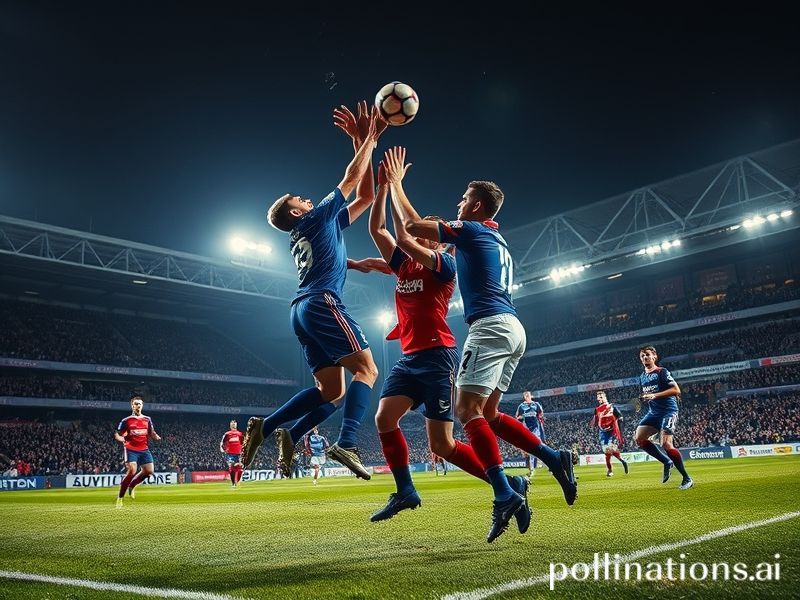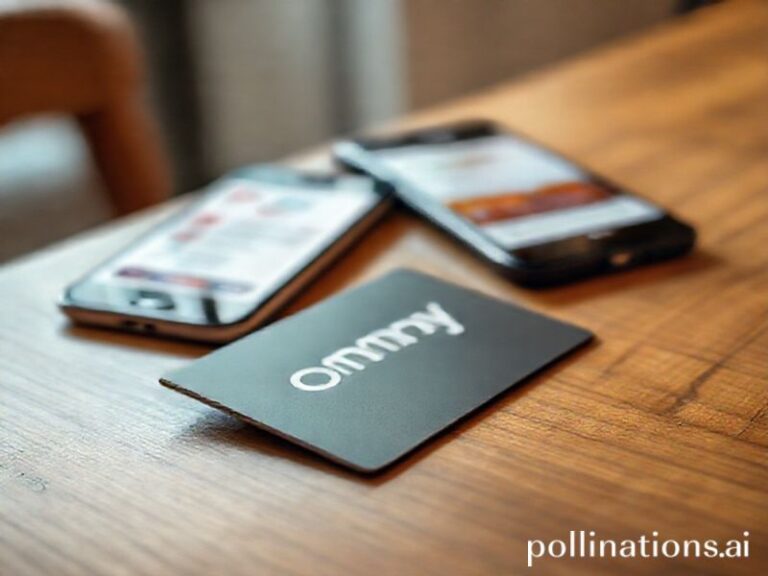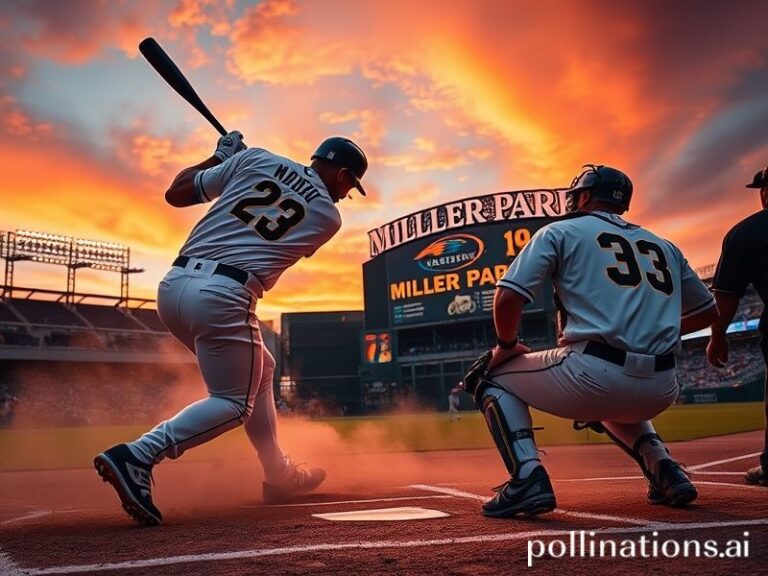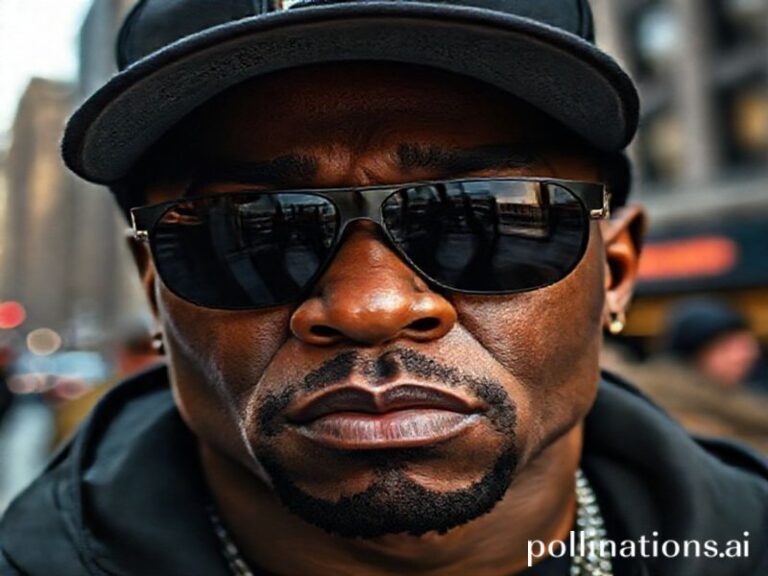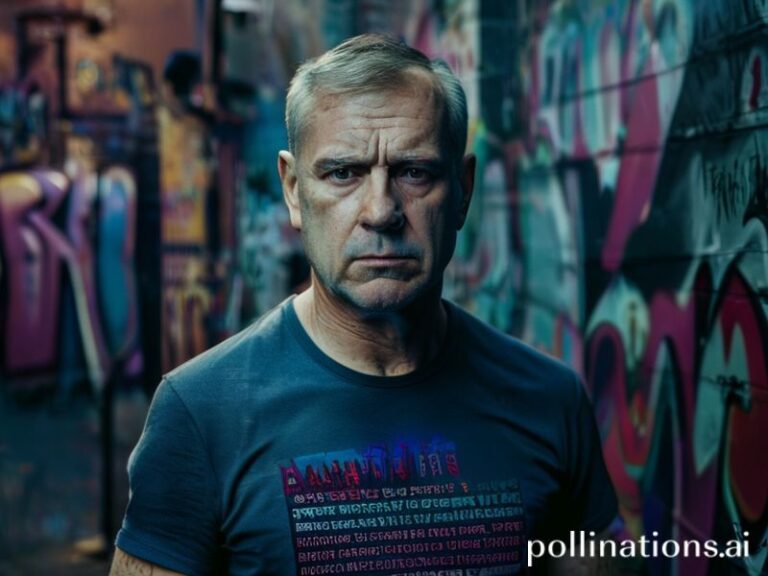Rangers vs Aberdeen: Scotland’s Frozen Derby in a Burning World
**Rangers vs Aberdeen: A Scottish Football Derby for the Apocalypse**
The world burns, markets crater, and glaciers commit suicide in real-time, yet on a frigid Saturday in Glasgow, 50,000 Scots will still gather to scream themselves hoarse over eleven millionaires in shorts kicking a ball. Rangers versus Aberdeen—ancient grudge match, Protestant pride versus the granite city, a fixture that somehow matters even as the Anthropocene clocks in for overtime.
International observers—those poor souls paid to care—note the fixture’s timing: kickoff coincides with COP-side negotiations where delegates argue over whether 2.7°C of warming is “acceptable.” Meanwhile, outside Ibrox, burger vans belch diesel like it’s 1999 and the Arctic is still a rumor. Inside, the atmosphere is pure carbon: flares, bile, and the faint whiff of litigation. UEFA officials watch via drone, tallying pyrotechnic fines the way medieval monks counted sins—methodically, joylessly.
Global significance? Let’s not oversell it. Neither side will win the Champions League; that particular gravy boat now docks exclusively in petro-state ports. But the match exports something subtler: a masterclass in tribal endurance. From Lagos to Lima, diaspora pubs open at dawn, streaming SPFL TV’s pixelated feed while local economies gently collapse. Nigerians in Rangers tops debate Calvin Bassey’s form; Peruvians in Aberdeen scarves argue whether Bojan Miovski could cut it in the Andes. Imperialism’s aftertaste, bottled and rebranded as “culture.”
Bookmakers—those multinational grief merchants—price a home win at 4/9, implying Aberdeen’s chances hover just above “ asteroid strike.” Still, hope is the last cheap commodity. The Dons haven’t won at Ibrox since 2016, back when Brexit was a punchline and口罩 were for surgeons. Their fans travel anyway, boarding trains in hypothermic drizzle, clutching cans and historical grievances: the 1983 Cup Winners’ Cup, the night Alex Ferguson’s kids danced past Bayern, before capitalism ate Scottish football and spat out the gristle.
Rangers, fresh from a Europa League humiliation in Lisbon, parade new signing Mohamed Diomande—Ivorian midfielder, 22, bought from Denmark for the price of a Glasgow housing scheme. He’ll earn more in a week than his former village sees in a decade, a statistic so banal it no longer registers as obscenity. Across the pitch, Aberdeen’s Scottish core earn Premier League pocket lint, reminders that nationalism stops at the wage structure.
Geopolitically, the fixture is a safe war: no sanctions, no drone strikes, just collateral ligaments. FIFA ranks it somewhere between “friendly” and “irrelevant,” yet broadcast rights feed a micro-economy of ex-pro pundits, each peddling the myth that passion equals relevance. They speak of “title races” the way morticians discuss “natural glow”—professional courtesy masking the stink.
At halftime, screens flash odds on managerial sackings. Both gboards hover near evens; unemployment is the one growth sector left. Fans check phones for updates from Gaza, Kyiv, or the latest currency implosion, then rejoin the chorus about “going for 55.” Cognitive dissonance, set to a 4/4 beat.
Full-time whistle blows, usually to Rangers’ favor. Streets empty into kebab shops where salt counts as vegetable. Somewhere in the South Pacific, another atoll slips beneath the waves, unnoticed by BT Sport’s highlight package. Yet the ritual resets: next derby penciled, replica shirts pre-ordered, grievances curated for export. The world ends every Saturday at 5 p.m.; by Monday we’re back in training.
Scottish football: proving ground for existential shrug, where even despair is subsidized by television. Tune in, if only to remember that apocalypse, like VAR, always favors the bigger brand.

